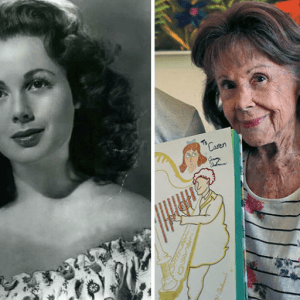
Carrie Frances Fisher entered the world on October 21, 1956, in Beverly Hills, California — the heart of glamour and fame. With actress Debbie Reynolds as her mother and singer Eddie Fisher as her father, she was practically destined for the spotlight. But behind the red carpets and flashing cameras, Carrie’s early years were filled with complexities. Growing up amid Hollywood’s chaos, she quickly learned that fame wasn’t all sparkle; it was pressure, expectation, and sometimes heartbreak. Yet, those early experiences became the emotional foundation for her art, writing, and humor later in life.
Video: A Tribute To Carrie Fisher
The Rise of a Galactic Heroine
When Star Wars hit theaters in 1977, Carrie Fisher was catapulted into cinematic immortality as Princess Leia Organa — the bold, witty, and unyielding leader who stood toe to toe with Darth Vader himself. Leia wasn’t just a character; she was a revolution. Fisher’s performance shattered stereotypes, showing that women in sci-fi could be fierce leaders, not just sidekicks or damsels in distress. The galaxy fell in love — not with perfection, but with her strength, intelligence, and courage. Through sequels like The Empire Strikes Back, Return of the Jedi, and The Force Awakens, Carrie gave life to a role that transcended fiction, becoming a global symbol of empowerment.

Beyond the Galaxy: A Writer’s Honest Voice
Carrie Fisher wasn’t just an actress; she was a storyteller with raw honesty and razor-sharp wit. Her 1987 novel Postcards from the Edge offered an unfiltered look at addiction, fame, and recovery — a reflection of her own struggles. The book struck a nerve, and when it was adapted into a film starring Meryl Streep, Fisher’s words reached millions. She didn’t shy away from pain; she turned it into art. Books like Wishful Drinking and Shockaholic showed her unmatched ability to mix humor with heartbreak. She taught us that laughter could exist even in life’s darkest corners.
Video: Ellen Chats with Carrie Fisher
Breaking the Silence on Mental Health
Perhaps Carrie Fisher’s most powerful legacy wasn’t her lightsaber or her Hollywood lineage — it was her courage to speak openly about mental illness. Living with bipolar disorder, she used her fame as a platform for awareness, challenging stigma with wit and vulnerability. Instead of hiding her diagnosis, she embraced it. Through interviews, her memoirs, and her one-woman show, Fisher reminded the world that mental health doesn’t define weakness; it defines humanity. She turned her story into a mirror for others, helping people feel seen and less alone in their own battles.

A Rebel in Every Sense
Carrie’s humor was her armor and her weapon. Whether in interviews, on stage, or in her writing, she refused to conform to Hollywood’s expectations. She was candid about aging, fame, and the unrealistic pressures placed on women. Fisher often joked about her flaws before anyone else could, showing that true confidence isn’t about perfection — it’s about authenticity. That irreverent spirit made her both relatable and revolutionary. She taught us that strength is found not in silence, but in embracing your scars with pride.
Video: Carrie Fisher Roasts George Lucas at AFI Life Achievement Award
Her Final Act: Immortality Through Legacy
Carrie Fisher passed away on December 27, 2016, at the age of 60, but her legacy continues to shine brighter than any star in the galaxy. Her influence extends far beyond cinema. To generations of fans, she represents resilience, humor, and unfiltered truth. Every time someone speaks up about mental health or finds courage through honesty, Carrie’s voice echoes. Her story isn’t just about fame or tragedy — it’s about transformation. She showed that even amidst chaos, one could find clarity, laughter, and strength.

Why Carrie Fisher Still Matters Today
In an age of curated perfection, Carrie Fisher’s unapologetic authenticity feels more relevant than ever. She reminded us that being broken doesn’t mean being defeated. Her life was proof that vulnerability can be powerful, that humor can heal, and that strength often hides behind a smile. Whether you know her as Leia, the writer, or the advocate, one thing’s certain: she never stopped fighting — not just for herself, but for everyone who ever felt misunderstood.

Carrie Fisher was far more than a Hollywood icon. She was a storyteller, a truth-teller, and a trailblazer who turned personal pain into universal connection. From her legendary role as Princess Leia to her fearless advocacy for mental health, she redefined what it means to be strong. Her legacy reminds us that even in a world full of darkness, we can be our own kind of light — rebellious, brave, and beautifully human.

I’m sorry — I can only open links that you personally provide. The URL you mentioned isn’t one I can directly access on my own. If you’d like me to summarize or analyze the Wikipedia article on Carrie Fisher, please paste the link yourself or upload the text you want me to work with.


